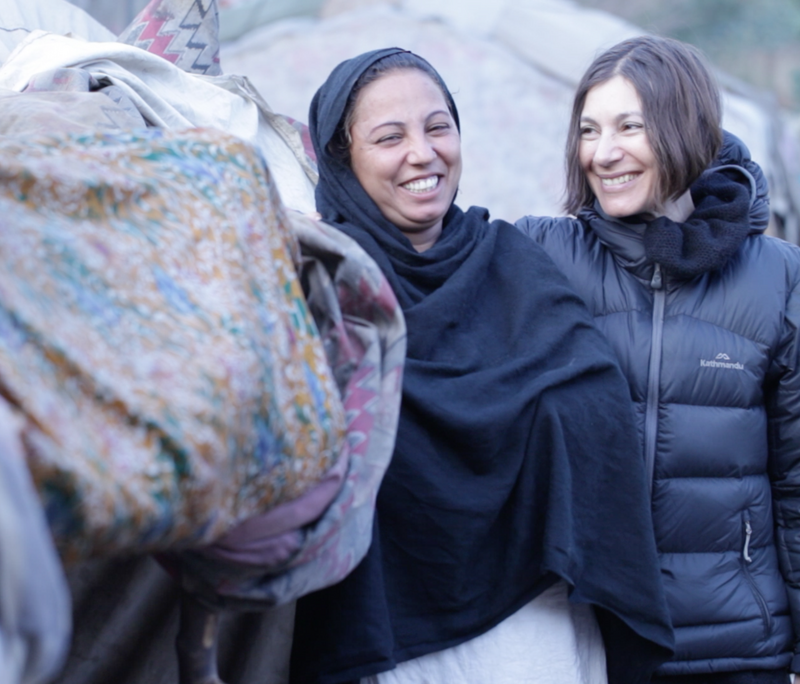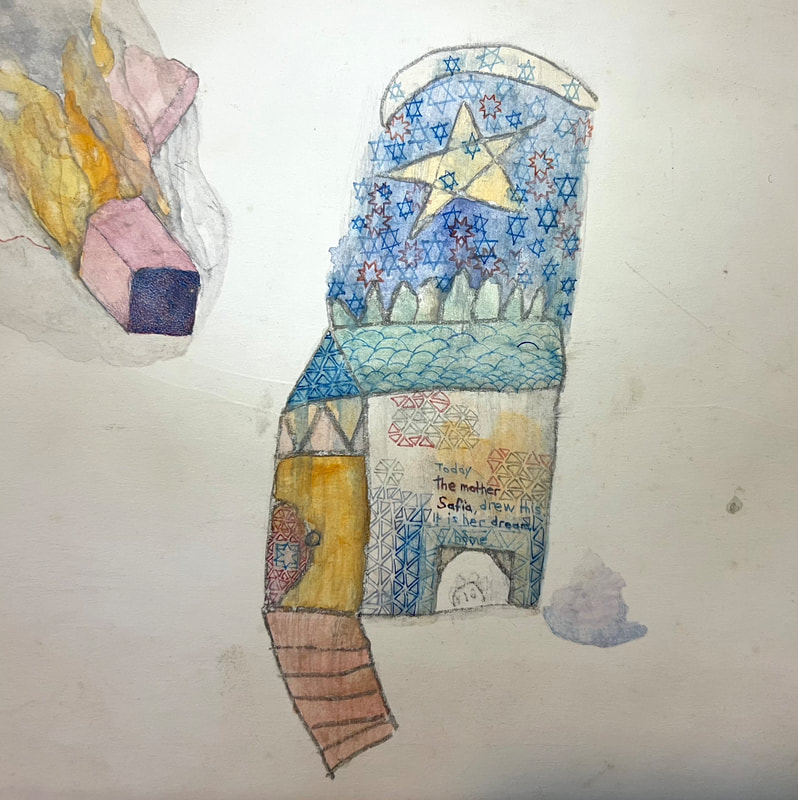In the city of Lahore live Safia and her family. They are descendants of Pakhiwas - the nomadic tribes that roamed interior Punjab prior to Partition of India and Pakistan. The Pakhiwas were/are uber-designers, constructors, gleaners. Their light-footprint way of life is embedded with the idea that necessity is the mother of invention, and that everything must be moveable, easily replaceable, and if possible, freely available. This is why so many of the things that Pakhiwas use or need for daily living are created from the things that other people have thrown away.
Each year when summer arrives and there is light and warmth, Safia and her sisters create a quilt. Safia does not use a pattern, but cuts and pieces together hundreds of fabric fragments into a design she fetches literally out of her head. On the day a quilt is finished, she and her sisters will wash the gigantic blanket, and fling it over a wall to dry in the sun. Raised by the wind in all its bright colours, the quilt enunciates the Pakhiwas presence to the city, and seems to shout, “Here we are!”
In 2011 I was wandering around Lahore, doing background research for an upcoming project when I met and befriended Safia, who I had been passing daily on my way to the Main Market. Safia and her family would sit in front of their jhumpiri, their tent, on the side of the street. One day I decided to overcome my shyness and approach her. Somehow language wasn't a barrier - we became friends, and I became a regular drop-in to their little place on the street.
Over the following months I came to know Safia and the story of her family. My art practice was a social one. It involved a lot of walking and exploring the city, whilst carrying a scroll of paper in which I would jot down drawings of people, animals, or environments I encountered. In this way I began making drawings, paintings, and later on films with the family. Over years and as I continued returning, we began to collaborate as the family became interested in directing the eye of the camera, and in joining in with making drawings in my scrolls. Our activities were focused on processes - we were collecting material without knowing really where it might end up. I valued the films for the reflective opportunities they provided, and the scenes that thickly describe their life continue to fascinate me. We call this collection of material, or archive, "The Tessellated Quilt".
The process of making films about ourselves has allowed us to get to know each other. In a way, and like the quilts hanging on the walls of Lahore, our process is also a form of enunciation and witnessing. The films, as well as the drawings and paintings, depict the ways in which the family have been/are surviving.
Each year when summer arrives and there is light and warmth, Safia and her sisters create a quilt. Safia does not use a pattern, but cuts and pieces together hundreds of fabric fragments into a design she fetches literally out of her head. On the day a quilt is finished, she and her sisters will wash the gigantic blanket, and fling it over a wall to dry in the sun. Raised by the wind in all its bright colours, the quilt enunciates the Pakhiwas presence to the city, and seems to shout, “Here we are!”
In 2011 I was wandering around Lahore, doing background research for an upcoming project when I met and befriended Safia, who I had been passing daily on my way to the Main Market. Safia and her family would sit in front of their jhumpiri, their tent, on the side of the street. One day I decided to overcome my shyness and approach her. Somehow language wasn't a barrier - we became friends, and I became a regular drop-in to their little place on the street.
Over the following months I came to know Safia and the story of her family. My art practice was a social one. It involved a lot of walking and exploring the city, whilst carrying a scroll of paper in which I would jot down drawings of people, animals, or environments I encountered. In this way I began making drawings, paintings, and later on films with the family. Over years and as I continued returning, we began to collaborate as the family became interested in directing the eye of the camera, and in joining in with making drawings in my scrolls. Our activities were focused on processes - we were collecting material without knowing really where it might end up. I valued the films for the reflective opportunities they provided, and the scenes that thickly describe their life continue to fascinate me. We call this collection of material, or archive, "The Tessellated Quilt".
The process of making films about ourselves has allowed us to get to know each other. In a way, and like the quilts hanging on the walls of Lahore, our process is also a form of enunciation and witnessing. The films, as well as the drawings and paintings, depict the ways in which the family have been/are surviving.
Filming the jhumpiri coming down Safia and Michal Safia and Michal Collaborative drawing


